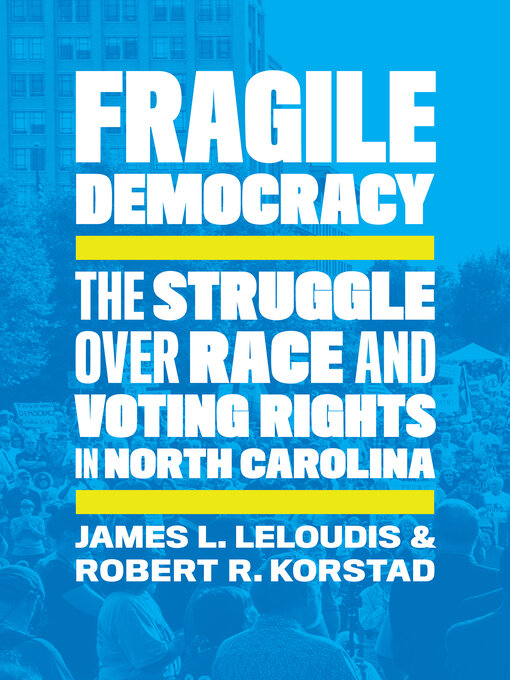-
Description
-
Creators
-
Details
North Carolina is a battleground for this debate, and its history can help us understand why—a century and a half after ratification of the Fifteenth Amendment—we remain a nation divided over the right to vote. In Fragile Democracy, James L. Leloudis and Robert R. Korstad tell the story of race and voting rights, from the end of the Civil War until the present day. They show that battles over the franchise have played out through cycles of emancipatory politics and conservative retrenchment. When race has been used as an instrument of exclusion from political life, the result has been a society in which vast numbers of Americans are denied the elements of meaningful freedom: a good job, a good education, good health, and a good home. That history points to the need for a bold new vision of what democracy looks like.

- James L. Leloudis - Author
- Robert R. Korstad - Author
Kindle Book
- Release date: August 6, 2020
OverDrive Read
- ISBN: 9781469660400
- Release date: August 6, 2020
EPUB ebook
- ISBN: 9781469660400
- File size: 6155 KB
- Release date: August 6, 2020
PDF ebook
- ISBN: 9798890856579
- File size: 4528 KB
- Release date: August 6, 2020
Formats
Kindle Book
OverDrive Read
EPUB ebook
PDF ebook
subjects
Languages
English
